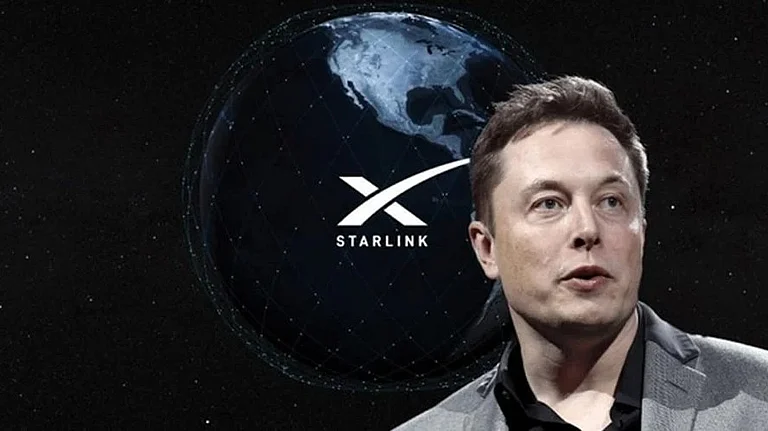Start-up founders across India have joined hands to push back against an internet regulation proposal being considered by the Telecom Regulatory Authority of India (TRAI). So far, over 130 founders have raised their objection to the idea of internet services being regulated as per the demands put forward by telecom service providers (TSPs).
The letter was signed by Zerodha’s Nithin Kamath, Paytm’s Vijay Shekhar Sharma, PhonePe’s Sameer Nigam, and MapMyIndia’s Rohan Verma, among others.
In response to TRAI's consultation on “Regulatory Mechanism for Over-The-Top Communication Services...”, start-up founders stated that further regulation of online services beyond what is already exercised under IT Act, 2000 will result in overregulation and would amount to violation of net neutrality.
In the letter, the founders defined net neutrality as thus: “a principle that assures telecom or internet service providers don’t discriminate for or against online apps and services, on the basis of availability, speed, or cost of access, leaving that choice to the end user alone.”
The debate around net neutrality is not new in India. TRAI had floated a paper on regulation of internet services in 2015 as well, but the pushback from the industry and mass campaigning for net neutrality from internet users resulted in the proposal being rolled back then.
The start-up founders enumerated several potential hazards that could arise from regulation of internet services from TRAI’s end. Some of them, summarised below, expands on the idea of net neutrality and explains why internet companies in India are opposed to regulation at par with the telecom companies.
‘Not A Simple Two-Sided Market’
The bone of contention between telcos and internet companies has to do with something called ‘network usage fees’. In the consultation paper, TRAI solicited comments from the industry on how to go about the collection of such fees.
Telecom service providers (TSPs), such as Jio, Airtel and Vi, broadly believe that internet companies have wronged them and taken undue advantage of them in two ways. First, some internet applications and services have substituted traditional telecom operators by providing similar services such as calls and messages. Telcos argue that this 'substitution’ has an adverse impact on their revenues. Second, internet companies provide their services over a network that is largely developed by the TSPs. However, large capital investments that are required for the expansion and maintenance of this network are borne by TSPs and not by the internet companies who benefit from a wider and quicker network.
This is why telcos demand network usage fees from internet companies who utilise their network. Based on the traffic generated from the internet service provided by TSPs, internet companies generate their revenues. Some part of this revenue should be shared with the TSPs who provide internet access to users in the first place, the telcos argue.
However, the internet company founders who signed the joint letter to TRAI disagree with both the claims made by the telecom companies. On the claim around internet services substituting traditional telecom services, the letter notes that since many apps and services provide communication function alongside other features, it would be “incorrect” to categorise them as substitutes.
Against the claim of internet companies utilising the network provided by TSPs, without contributing to its infrastructure costs, the letter says, “The internet is not a simple two sided market. Ours are internet services which consumers demand, and are delivered via a complex network of networks called the internet, and not value added services which are delivered by telecom operators. We host our services and pay for sending and receiving content via the Internet to our edge ISP [internet service provider], just like any other Internet user.”
The start-up founders’ reasoning is that since companies already pay for accessing the internet, there is no need to share the revenue generated from user traffic. Implementing such a revenue-sharing mechanism would result in discriminatory prices for consumers based on the content—antithetical to the idea of net neutrality.
Other concerns raised by the founders include compliance costs and entry barriers for start-ups. “The suggested form of regulatory framework, where TSPs essentially have the power to tilt the playing field to favour one website/ application/ service or another, will inevitably lead to discrimination, non-level playing field, entry barriers, and increased compliance burden,” the letter states.
The joint letter also mentions that since the Indian government is actively encouraging start-ups in the country to build in India for the world, any additional compliance burden on start-ups will end up favouring big multinational tech companies.
It says, “Telecommunications licensing requirements, if extended to internet applications and services, may impose onerous obligations on Internet services, including costly legal compliances, and impact key product decisions which may harm India’s vibrant start-up ecosystem. If anything, these obligations will favour large multinational conglomerates who can afford to adapt to such regulations.”
The joint letter is backed by SaveTheInternet, a voluntary campaign that took shape during the net neutrality advocacy movement in 2015. This time around, the start-up founders would be hoping for the campaign to find success yet again.
TRAI’s consultation paper on the matter of internet regulation is open for counter-comments from stakeholders until 29 September.
































